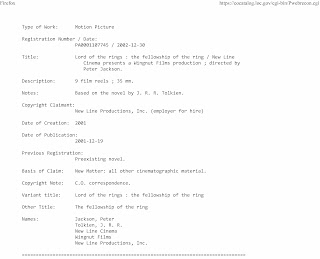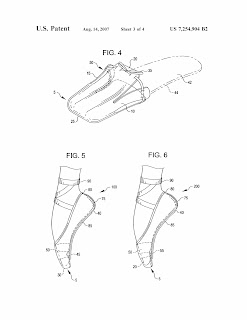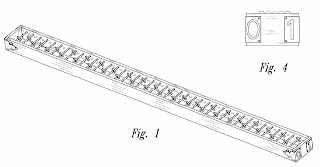Like me, I know you've definitely contemplated how it is permissible for books and other products to be resold without violating creators' or original owners' intellectual property rights.Why is it okay to sell a book to Half Price Bookstore, who resells it, when the contents of that book belong to a copyright holder? How is it legal for vintage stores to sell branded garments from internationally recognized trademark holders like Nike, complete with the trademarked Swoosh? If car dealerships are independently owned and operated, why are they permitted to sell vehicles that are comprised of many patented parts, bearing trademarked logos and even appearances?
After all, in many of these case, the products have been altered or associated with a new brand. New cars come with post-manufacturer upgrades that don't void warranty or make them any less a version of their original make and model. Some vintage stores have embellished garments or accessories that are still sold using the original product's familiar qualities, using that to add market value.
Patent law says that assignees have the right to exclude others from making, using, selling, offering for sale in the U.S., or importing into the U.S., their patented inventions. Copyright law grants owners the right to selling copies, performing, exhibiting, displaying, playing recordings of, and distributing reproductions of their work, and authorizing others to do any of those. Trademarks grant businesses the right to use a specific image, phrase, sound, or some other media to identify their brand and product.
These aren't cases of licensing, in which creators or owners allow a third party to use their IP for a fee or some other exchange.
So why aren't dealerships sent cease and desist notices, clothing
resellers taken to court for trademark infringement, and authors/publishers suing
second hand book stores for royalties?
What we're looking at here are all cases of first sale doctrine--a legal precedent near and dear to all librarians' hearts (which may also be described as exhaustion when concerning patents). It's an interesting aspect of IP law that can be applied in roughly the same way to patent, trademark, and copyright cases.
Generally speaking, the specific rights to income from IP for an item stop after the first sale to the general consumer market.
An important part of this to keep in mind: it is the specific copy or item that first sale doctrine applies to, not the concept or work--the true IP at stake.
In the case of copyright, I can resell a book but not make copies of it, or perform public readings from it, or create a movie based on it. Only that one copy, that particular item, is subject to first sale.
Similarly, the same applies to products with trademarks appearing on them. Reselling the branded product does not infringe, only reusing the actual trademark separately would. In our example above, applying the Nike Swoosh to the name of a resale store, or using it to represent the store in some way, would be the violation. But carrying products that have the mark is distinct.
Think of it the same way in terms of patents: a vehicle with patented components is a single instance of that patented technology. The actual patent, or producing more vehicles with the same patented components, is not for sale or distribution.
It is also important to note that first sale doctrine, primarily when applied to trademarks, also stipulates that the re-selling does not negatively impact its value. If the general consumer's goodwill towards a brand is damaged because of the resale, then first sale doctrine may not apply.
The seller also needs to make it clear, in many cases confirmed by courts, that they are not the actual owner or representatives of any items. That's kind of why "independently owned and operated" gets thrown around a lot (though only one reason).
To combine those two concepts, if I turn Nike athletic shoes into a pair of sandals, they can't be such poor quality that it reflects negatively on the overall Nike brand. I also can't represent my sandals as something licensed or produced by Nike. It must be very clear that these are Hannah's athletic sandals, sold by Octopeds™ company. [Octopeds™: they're so great, you wanna wear eight!]
Of course, we have to consider that any one of these examples may not go the way I propose them in a court of law. A company like Nike may not look too kindly on someone messing with their products; if they take me to court, they're going to win just because I can't afford to compete with their legal resources.
Also, I'm not a lawyer or a legal expert, so don't quote me or my blog on this. Use the linked pages, they are more authoritative.
Are you confused yet?
Yeah, me too. Let's go look at internet cats or something instead.







